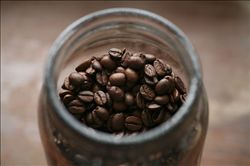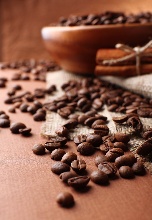Introduction to the characteristics of fine coffee in Kenya Jinchu Coffee Flavor Variety
Kenyan coffee culture
Kenyan coffee culture
Kenyan coffee culture
People in the coffee industry all think that Kenyan coffee is one of its favorite products because Kenyan coffee contains every feeling we want from a good cup of coffee. It has a wonderful and satisfying aroma, well-balanced acidity, well-balanced particles and excellent fruit taste, rich and perfect taste.
Coffee entered Kenya in the 19th century, when Ethiopian coffee drinks were imported into Kenya from southern Yemen. But it was not until the early 20th century that the Bourbon Coffee Tree was introduced by the St. Austen Mission.
Kenyan coffee-flavor Kenyan coffee Kenyan coffee
Aromatic, full-bodied, with fruit flavor, taste rich and perfect. Kenyan coffee has a wonderful fruit flavor, tastes like BlackBerry and grapefruit, and is a favorite of many coffee gluttons. This coffee has an excellent medium purity, crisp and refreshing taste. It has a fresh flavor and is most suitable for drinking iced coffee in summer. When tasting this coffee, if it is paired with sour fruits such as grapefruit, it will certainly give me the best coffee experience. "not much like coffee, but a bit like fruit tea" is the common feeling of many people about this kind of shallow roasted Kenyan coffee.
In addition to having obvious and charming fruit acidity, Kenyan coffee is mostly from small coffee farmers, planted in a variety of different environments, encounter different climate and rainfall every year, and bring a variety of distinct and unique personalities. Take the AAPlus grade "KenyaAA+Samburu" as an example, the Samburu in 2001 has a strong aroma of black plum, low acidity and strong taste. The newly harvested Samburu in the winter of 2002 presents a completely different flavor, mulberry and green plum, with a little Nanyang spice (Spicy) flavor, after drinking, the aftertaste has the sweetness of green tea, and the acidity is slightly higher than that of the year before last. The taste is still strong, accounting for 55% of Kenya's total coffee production (40% of the total number of estates) is run by countless small operators. Seeing that coffee is absolutely profitable, these small operators continue to increase the need for agronomy and the development of high-quality coffee tree species, thus greatly promoting the development of coffee in Kenya.
To ensure that only ripe coffee fruits are picked, people must tour the forest about seven times. After they harvest the coffee, they first send the coffee beans to the cooperative cleaning station, where the sun-dried coffee is sent to the cooperative in the form of "parchment coffee beans" (that is, coffee beans covered with endocarp) ("parchment coffee" is the last state of coffee beans before peeling).
The Kenyan government takes the coffee industry very seriously, where it is illegal to cut down or destroy coffee trees. Kenyan coffee buyers are world-class high-quality coffee buyers, and no other country can grow, produce and sell coffee on a continuous basis like Kenya. All coffee beans are first purchased by the Kenya Coffee Commission, where they are identified, graded, and then sold at weekly auctions, where they are no longer graded. The best coffee grade is bean berry coffee (PB), followed by AA++, AA+, AA, AB and so on. The fine coffee is shiny, delicious and slightly alcoholic. Kenyan Coffee has become more famous with the sensation of the Hollywood movie "out of Africa". Karen, the heroine played by Meryl Streep, is a writer and coffee planter. Many people probably remember Karen's yellow-and-white linen dress, the beautiful scenery and the magnificent sunset. What is even more unforgettable is Karen's dream of having a coffee plantation in Africa.

Important Notice :
前街咖啡 FrontStreet Coffee has moved to new addredd:
FrontStreet Coffee Address: 315,Donghua East Road,GuangZhou
Tel:020 38364473
- Prev

Introduction to the characteristics of Fine Coffee in the producing area of Ye Jia Xuefei Adoto Coffee
As the top washed coffee in Ethiopia, which is the origin of coffee, Ethiopia Washed Yirgacheffe has the characteristics, high quality and low yield, so it has the factor of top coffee and is naturally very popular. Yega snow coffee is almost synonymous with the best coffee in Ethiopia! Up to 5800-6600 feet above sea level, it is famous for its lemon flavor and floral smell.
- Next

Introduction to the characteristics of flavor and taste in the producing area of Antigua Huashen coffee in Guatemala
This is because Guatemala is located in the tropics, the northern and eastern coastal plains have a tropical rain forest climate, and the southern mountains have a subtropical climate, with two dry and wet seasons a year, with the wet season from May to October and the dry season from November to April of the following year. The central plateau is also the cultural center of Guatemala, where temperatures are mild all year round at an altitude of 1300 to 1800 meters, with daily temperatures between 18 and 28 ℃.
Related
- Detailed explanation of Jadeite planting Land in Panamanian Jadeite Manor introduction to the grading system of Jadeite competitive bidding, Red bid, Green bid and Rose Summer
- Story of Coffee planting in Brenka region of Costa Rica Stonehenge Manor anaerobic heavy honey treatment of flavor mouth
- What's on the barrel of Blue Mountain Coffee beans?
- Can American coffee also pull flowers? How to use hot American style to pull out a good-looking pattern?
- Can you make a cold extract with coffee beans? What is the right proportion for cold-extracted coffee formula?
- Indonesian PWN Gold Mandrine Coffee Origin Features Flavor How to Chong? Mandolin coffee is American.
- A brief introduction to the flavor characteristics of Brazilian yellow bourbon coffee beans
- What is the effect of different water quality on the flavor of cold-extracted coffee? What kind of water is best for brewing coffee?
- Why do you think of Rose Summer whenever you mention Panamanian coffee?
- Introduction to the characteristics of authentic blue mountain coffee bean producing areas? What is the CIB Coffee Authority in Jamaica?

